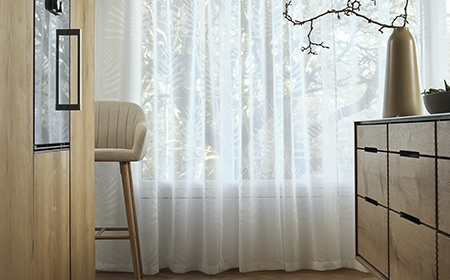When you share a bed with a partner one or both of you might have to struggle with snoring, duvet hogging and someone else tossing and turning. You can get separate beds or insist that your partner spends the night on the sofa, but in this post we give you our best tips to get the sleep you need while still sharing the bed...
How to stop someone from snoring
Both the person who snores and the bedmate get poor sleep quality. Men are more likely to snore, and the snoring tends to get worse as they age. Drinking alcohol close to bedtime also has a negative effect as well as sleeping on your back. Here is what you can do if your partner snores:
-
Roll your partner to the side. Some have been known to attach a hard item like a tennis ball to the back of the pajama jacket so lying on the back is uncomfortable.
-
Surround yourself with a wall of pillows to stop the snoring from reaching your ears.
-
Use a white-noise app on your phone to drown out the snoring.
You don't agree on the ideal room temperature
The ideal bedroom temperature ranges from 15 to 22 degrees. However, there are individual preferences that can be quite the challenge. Here is what you do:
Compromise! If your partner prefers 16 degrees and you prefer 21 degrees, chose a temperature in between. The cold-o-phobe can put on a thicker pajamas, and the human heater can throw aside the duvet. If you have the space, you can also get at bigger bed so the person who gets warm isn't as affected by the other's body heat.
You have different preferences when it comes to types of bed
Some people like a firm mattress, while others like a soft one. Your differences in this respect have an easy solution: Get a mattress, which is soft on one side and firm on the other. Mattresses with memory foam are a great choice as they take shape after your weight and body size. Just make sure that you don't switch sides. You can also invest in two different twin beds and push them together.
You are a lark and your partner is a night owl
We all have an internal clock that determines when we are ready go to sleep at night and wake up in the morning. It is almost impossible to change. If your and your partner's body clocks are out of sync, it can be annoying for both of you. This is also the case if one partner works an early shift while the other goes to work later.
Here is what you do:
-
The night owl is extra quiet at night so the lark does not wake up
-
The lark is extra quiet in the morning so the the night owl can sleep in
-
The one working an early shift gets up when the alarm sounds in stead of hitting the "snooze" button again and again
-
The night owl uses headphones to listen to music or watch TV at night
-
The lark uses an eye mask to shut out light
You like calming noise, your partner likes peace
For some people there is nothing more somnolent than the sound of a sitcom with a laugh track. If one of you is like this and the other one needs silence to fall asleep, here is what you do:
-
Get some headphones for the sound-addict
-
Make an agreement to turn off the TV after 20-30 minutes
-
Keep the TV volume low
-
Get some white noise in your headset or earplugs
You live with a duvet hog
Your partner doesn't mean to - but each night you end up with no duvet because your partner has hogged it. If the tug of war over the duvet happens regularly, here is what you do:
Get separate duvets or upscale: A king-sized duvet on a queen-sized bed can be a great solution for both of you.
One partner tosses and turns all night
Everyone changes position at least a few times each night, but some people tend to be rather restless sleepers. They can't help it, but if it means that both of you struggle to get to sleep, here is what you do:
-
Get two duvets so you will notice each other's movements less
-
Use pillows to create a border between you
-
Consider a larger bed so you have less physical contact during the night. The bigger the bed you can fit into your room, the better the sleep you'll have.
Can it be bad to share a bed with your partner?
Partners have a positive effect on each other's sleep. They tend to follow a pattern when it comes to meal-times and bedtimes, and these factors have a significant impact on our internal body clock. Also have a look at the importance of bedtime rituals for your sleep. Being in a relationship also tends to make people feel safer. This decreases the levels of stress hormones and leads to less interrupted sleep.
However, there can also be a downside to sharing the bed. Researchers have found that partners synchronize their sleep stages when they sleep in the same bed. This means that someone with a sleep disorder can benefit from sharing the bed with a healthy sleeper but for the healthy sleeper this can be a drawback. In other words, if your partner is an insomniac and you are not, sharing the bed might be good for them, but bad for you. Hopefully our tips can help you both on the way to better sleep quality. Drop us a comment if you have other great advice, that you want to share!
Sources:
https://www.healthcentral.com/article/sharing-a-bed-with-a-partner-bad-for-your-sleep
http://www.health.com/health/gallery/0,,20872605,00.html#your-partner-s-snoring-leaves-you-staring-at-the-ceiling-0




